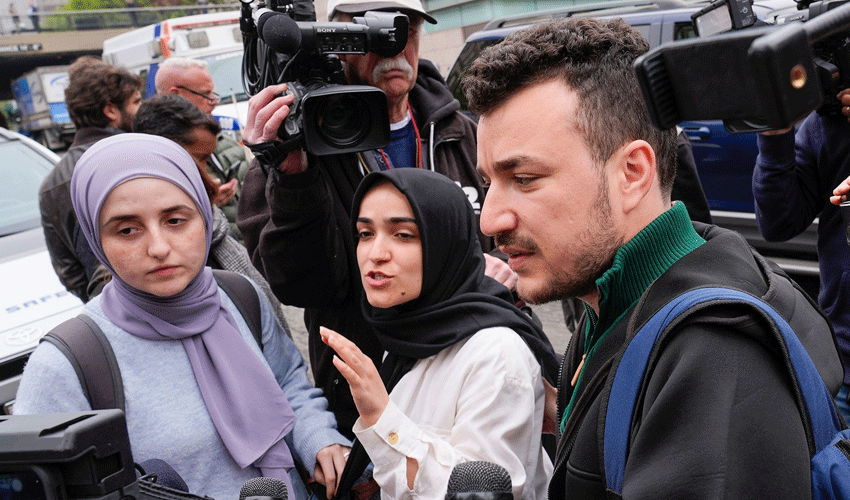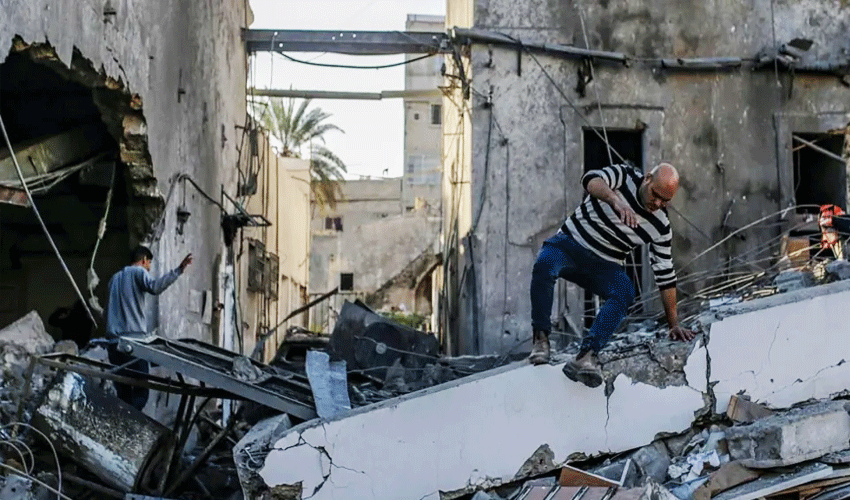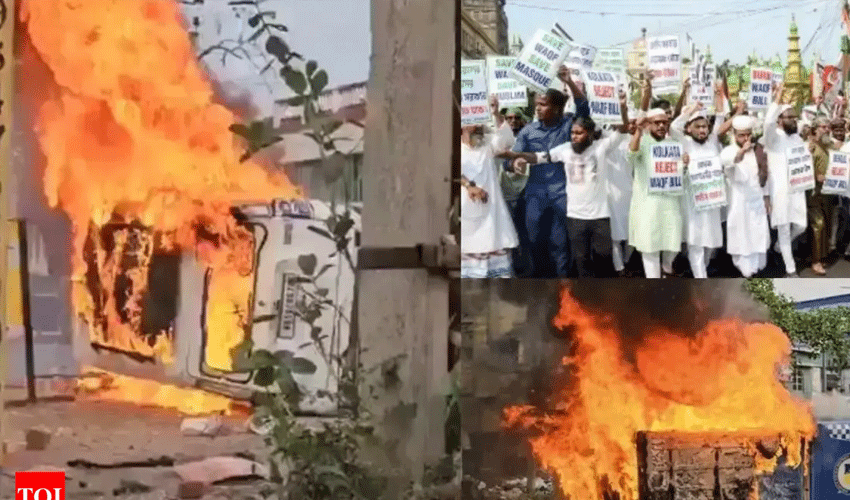A U.S. immigration judge has ruled in favour of the Trump administration’s bid to deport Mahmoud Khalil, a Palestinian student activist and Columbia University graduate, detained last month over his involvement in pro-Palestinian protests.
Mr Khalil, a 30-year-old permanent legal resident, has not been charged with any crime. However, U.S. authorities argue his presence in the country poses “adverse foreign policy consequences,” invoking a Cold War-era provision under the Immigration and Nationality Act of 1952.
The court ruling, handed down earlier this week, allows the administration to move forward with deportation proceedings. However, Mr Khalil’s legal team has been given until April 23 to file an appeal, a step they say they intend to pursue.
The activist has been held at a detention facility in Louisiana since March 8. According to court documents and statements from his attorneys, federal immigration officers informed Mr Khalil that his deportation was being pursued due to his participation in demonstrations denouncing the war in Gaza.
In a letter written from detention, Mr Khalil described his arrest as “a direct consequence” of his public advocacy for Palestinian rights.
He was a prominent organiser in last year’s student-led protests at Columbia University, which drew significant attention and divided opinion on U.S. campuses.
During Friday’s hearing, Mr Khalil addressed the court, criticising the process as lacking in fundamental fairness.
“I would like to quote what you said last time—that there’s nothing more important to this court than due process rights and fundamental fairness,” he told the judge. “Clearly what we witnessed today, neither of these principles were present… This is exactly why the Trump administration has sent me to this court, 1,000 miles away from my family.”
The American Civil Liberties Union (ACLU) condemned the decision as “pre-written,” pointing out that the government presented its so-called evidence just 48 hours before the ruling.
That submission reportedly consisted of a letter from Secretary of State Marco Rubio, stating that Mr Khalil had not committed any crimes but nonetheless should be deported due to his “speech and associations.”
The government has said its efforts aim to ensure Jewish students are protected from harassment, even if Mr Khalil’s actions fall within the bounds of lawful expression.
Secretary of Homeland Security Kristi Noem publicly endorsed the ruling, stating on social media:
“When you advocate for violence, glorify and support terrorists that relish the killing of Americans, and harass Jews, that privilege [of residency] should be revoked.”
However, Mr Khalil’s lawyers maintain that there is no evidence linking him to antisemitic behaviour.
“Mahmoud is not against the United States. He is not antisemitic. He has done nothing wrong,” said Johnny Sinodis, a member of his legal team. “He’s feeling confident. He’s feeling supported.”
His lead attorney, Marc Van Der Hout, criticised the decision and vowed to continue legal efforts to protect Mr Khalil’s rights.
“We are going to fight for Mahmoud’s right to speak out against what’s happening in the U.S.,” he said.
Mr Khalil has also filed a separate lawsuit in federal court in New Jersey, challenging his arrest on constitutional grounds. His legal team hopes that a favourable ruling in that case could ultimately prevent his deportation.
The Trump administration has additionally claimed that Mr Khalil committed immigration fraud by omitting certain affiliations from his green card application—specifically, his past work with the British embassy in Beirut and the United Nations Relief and Works Agency (UNRWA) for Palestinian refugees. However, no fresh evidence has been submitted to substantiate these allegations.
In a statement, White House Assistant Press Secretary Taylor Rogers said:
“The Trump administration is committed to the enforcement of our immigration laws and will take swift action to remove aliens who pose serious adverse foreign policy consequences for the United States.”
The ruling against Mr Khalil has sparked fresh debate over the limits of free speech, political dissent, and immigration enforcement under the renewed Trump administration. Rights groups have warned that the case could set a troubling precedent for non-citizens engaged in political activism.
As his legal battle continues, Mr Khalil remains detained—far from his family and supporters, but still determined to challenge what he and his lawyers describe as a politically motivated campaign of suppression.


























